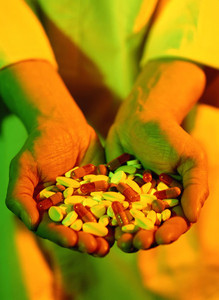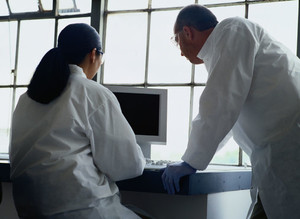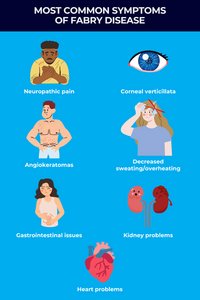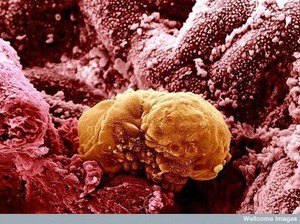New approvals by FDA look set reach record levels in 2011. Some noteworthy drugs already approved in 2011 are discussed below.
Benlysta (belimumab) for lupus
Benlysta (belimumab) achieved first monoclonal antibody of the year to be approved on 9 March 2011. It is also the first new drug for lupus in 56 years.
Two clinical studies involving 1,684 patients with lupus demonstrated its safety and effectiveness. The studies diagnosed patients with active lupus and randomised them to receive Benlysta plus standard therapy, or an inactive infused solution (placebo) plus standard therapy. The studies excluded patients who had received prior B-cell targeted therapy or IV cyclophosphamide, and those who had active lupus involving the kidneys or central nervous system. African-American patients did not appear to respond to treatment with Benlysta. The sponsor will conduct an additional study of people with similar backgrounds.
Those receiving Benlysta during clinical studies reported more deaths and serious infections compared with placebo. The drug should not be administered with live vaccines. The most common side effects in the studies included nausea, diarrhoea, and fever. Patients also commonly experienced infusion reactions, so pre-treatment with an antihistamine should be considered.
Yervoy (ipilimumab) for metastatic melanoma
Melanoma is the leading cause of death from skin disease. An estimated 68,130 new cases of melanoma were diagnosed in the US during 2010 and about 8,700 people died from the disease, according to the National Cancer Institute.
Yervoy (ipilimumab) is a monoclonal antibody that blocks a molecule known as cytotoxic T-lymphocyte antigen or CTLA-4. CTLA-4 may play a role in slowing down or turning off the body’s immune system, affecting its ability to fight off cancerous cells. Yervoy may work by allowing the body’s immune system to recognise, target, and attack cells in melanoma tumours. The drug is IV administered.
In the study, those who received a combination of Yervoy plus vaccine or Yervoy alone lived for an average of about 10 months, while those who received the experimental vaccine only lived for an average of 6.5 months.
Severe-to-fatal autoimmune reactions were seen in 12.9% of patients treated with Yervoy. Due to the unusual and severe side effects associated with Yervoy, the therapy is being approved with a risk evaluation and mitigation strategy to inform healthcare professionals about these serious risks.
Corifact (Factor XIII) for rare bleeding disorder
The first biological to be approved in 2011 by FDA was Corifact (Factor XIII), which is extracted from pooled plasma. Corifact was approved to stop bleeding in people with very rare congenital Factor XIII deficiency and is an orphan drug.
Victrelis (boceprevir) for hepatitis C
Victrelis (boceprevir) was approved by FDA on 13 May 2011 for the treatment of hepatitis C. It is the first new drug in 20 years for hepatitis C virus (HCV) infections. When added to peg interferon and ribavirin, about 66% of patients had sustained virus response. The new drug application contained data on 1,500 HCV patients in two phase III trials. The drug is taken three times a day with food. Reported adverse drug reactions included fatigue, anaemia, nausea, headache and taste distortions.
Dificid (fidaxomicin), a new antibiotic
FDA moved very fast in approving Dificid (fidaxomicin), a new antibiotic to treat Clostridium difficile infections. The approval was based on results from two phase III trials in 564 patients. It was compared with vancomycin and the clinical response was similar in the two groups. Both the drugs cured 85% of patients after 10 days of treatment. The recurrence rate after 25 days post-treatment was 25% in the vancomycin group compared to 15% for the Dificid group. The common adverse drug reactions were nausea, vomiting, headache, abdominal pain and diarrhoea.
Sales are projected to be US$160 million per year in the US, where over 100,000 patients are infected each year, over 1,000 have the colon removed, and 5% die. The cost of the 10-day treatment will be Euros 2,100 compared with Euros 1,050 for vancomycin, which has to be given more often and at higher doses.
Related articles
FDA new drug approvals up in 2011: 900 biotech drugs in development
US approvals of biologicals doubled in last decade








 0
0











Post your comment